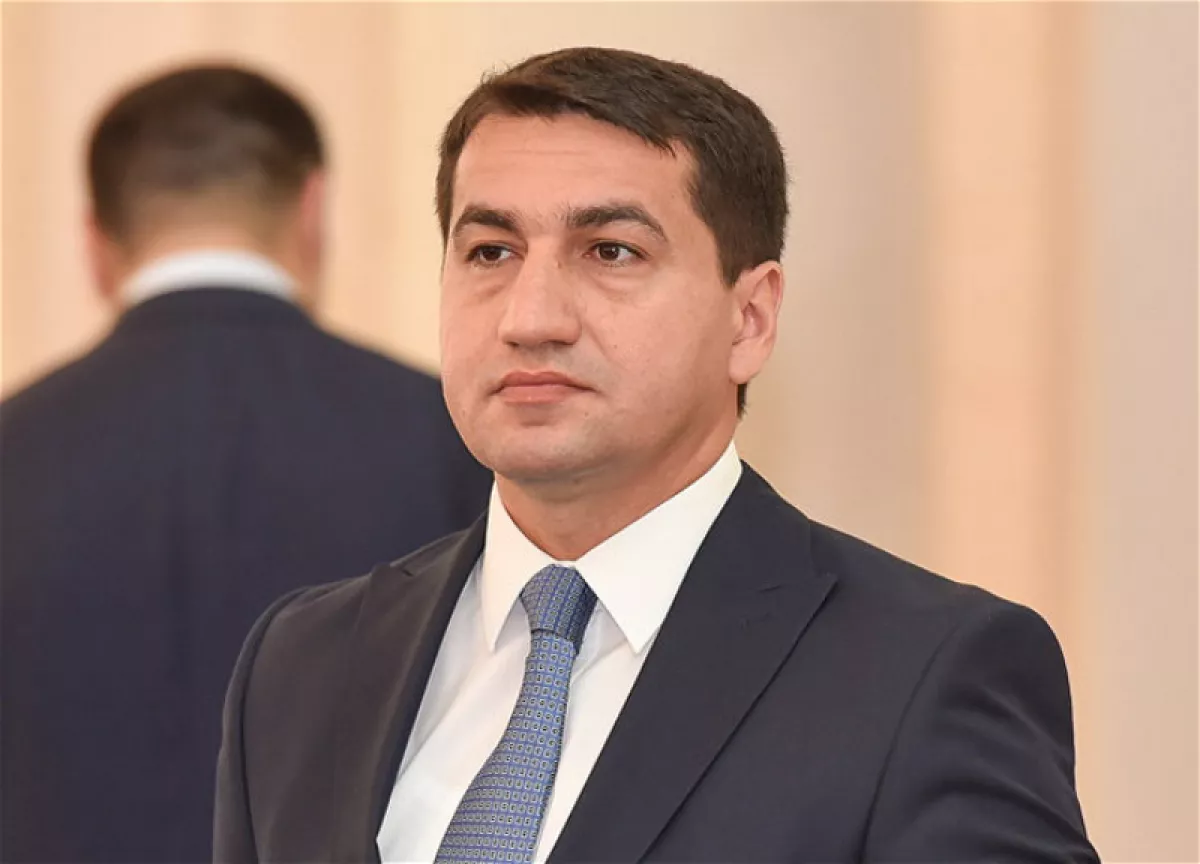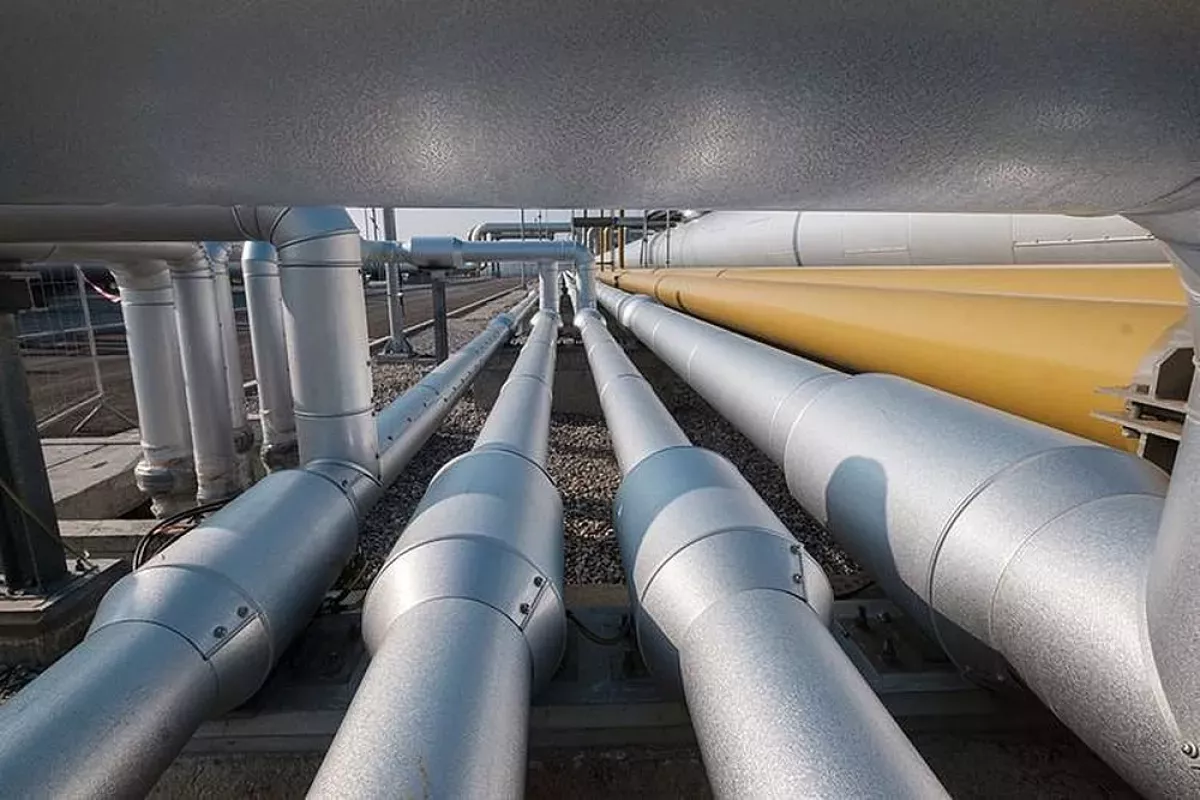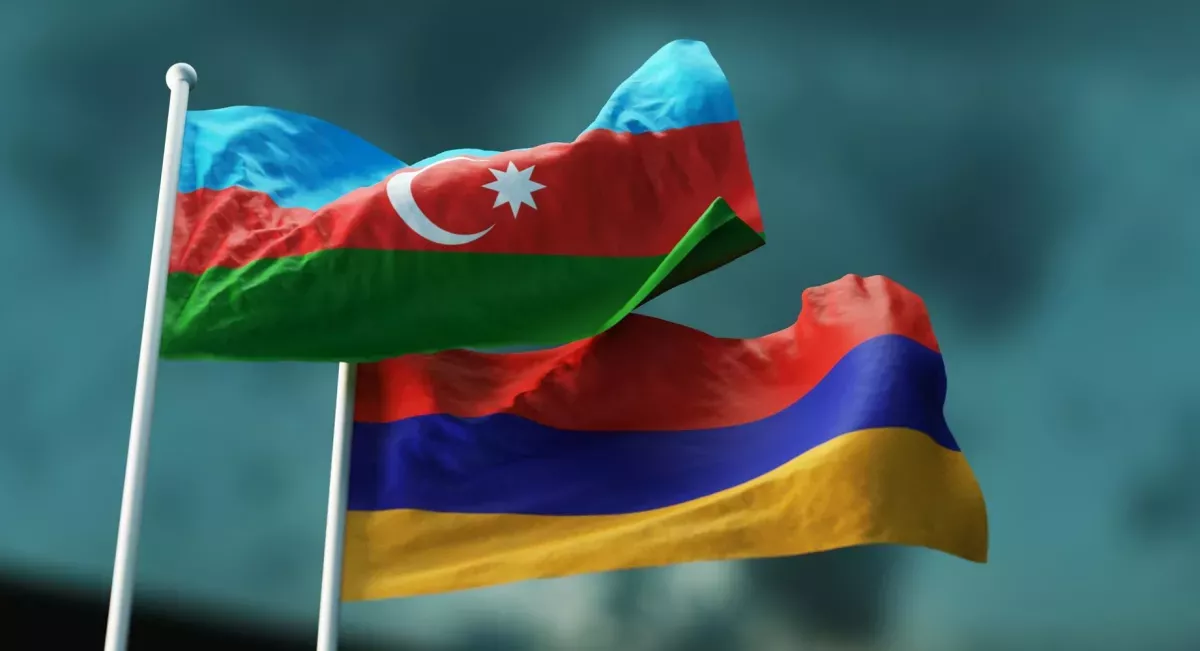Clarity and justice Caliber.Az comments on Hikmet Hajiyev’s interview
Assistant to the President of Azerbaijan and Head of the Foreign Policy Affairs Department of the Presidential Administration, Hikmet Hajiyev, gave an interview to the Slovak publication Hospodárske noviny.
This conversation reflected both Baku’s strategic vision of its role in the world and the fair expectations Azerbaijan holds toward its international partners.
The first part of the interview focused on Azerbaijan–Europe relations, as well as the role of Central and Eastern Europe in Baku’s geopolitical doctrine. Hajiyev emphasised that Baku views the countries of Central and Eastern Europe as traditional friends and partners, highlighting nations such as the Czech Republic and Slovakia.

Noting that the countries face common challenges, Hajiyev conveyed an important message: “You are important partners for us, through whom we can convey our messages to the European Union and other international institutions.”
This reflects Baku’s deliberate strategy: to build ties with smaller but active EU countries in order to influence the more inert or biased decision-making centres of Western Europe.
One of the main topics concerning Azerbaijan–EU relations was our country’s role in the energy architecture of Europe. As is well known, following the outbreak of the Russia–Ukraine war in 2022, the need for energy diversification became a matter of survival for the EU. In this context, Baku came to the forefront, supplying part of the missing gas volumes through the Trans Adriatic Pipeline (TAP).
In response to the question, “Do you believe that Azerbaijani gas could fully replace Russian supplies in the long term?” — Hajiyev emphasised that Baku has never pursued such a goal, also noting the incomparable scale of gas supplies to Europe from Russia and Azerbaijan.
“We are not competing with Russia over who can supply Europe with energy resources — our reality is quite different. We have our own capabilities, and I believe that thanks to Azerbaijani gas, the EU will be able to reduce the pressure on the energy security of the Union’s eastern flank,” the presidential aide concluded.

Speaking about the prospects for expanding gas supplies to Europe, Hajiyev stated that the issue hinges on infrastructure and the EU’s willingness to invest: “Azerbaijan has rich gas reserves in the Caspian Sea; however, the capacities of the Trans Adriatic Pipeline and the Southern Gas Corridor are already fully utilised today. They need to be technically expanded.”
Hajiyev also highlighted the need for long-term contracts in this context and diplomatically — yet clearly — remarked: “The ball is in the European Union’s court.”
A portion of the interview was devoted to Azerbaijan’s foreign policy priorities. Hikmet Hajiyev once again underscored Baku’s commitment to a multi-vector policy, noting that Azerbaijan seeks to maintain normal relations with Russia and Iran, while at the same time enjoying good relations with Israel and China. At the same time, he added, Baku is building a productive dialogue with the United States. The presidential aide noted that with the arrival of the Trump administration, “proposals emerged to raise the level of cooperation all the way to a strategic partnership..”
A special emphasis in the conversation was placed on Türkiye. Hajiyev stressed that it is a brotherly country and a strategic ally of Azerbaijan, expressing satisfaction with Türkiye’s emergence as a global actor.

In response to a question about Azerbaijan’s position on the Russia–Ukraine conflict, Hajiyev outlined three key points: Baku seeks to maintain good relations with both sides, avoids any involvement in the military confrontation between Russia and Ukraine, and at the same time firmly supports the principle of territorial integrity of other states.
Describing Azerbaijan’s foreign policy model, Hajiyev summarised: “For us, it is not a question of excluding someone but, on the contrary, of inclusion — integrating into the existing space of interaction. We are convinced that one set of bilateral relations should in no way exclude other formats of cooperation.”
Naturally, the part of the interview devoted to Armenian–Azerbaijani normalisation holds particular interest.
Once again identifying the main obstacle to signing a peace agreement as the presence of territorial claims against Azerbaijan in Armenian legislation, Hikmet Hajiyev pointed to the key factor shaping the normalisation process: “A new status quo has formed in the region, based on legality and legitimacy.”

"Peace between Armenia and Azerbaijan already exists," Hajiyev stated.
In these words from the presidential aide, one can sense not only Azerbaijan’s firm stance, but also the broader acceptance by global players of the new geopolitical reality in the South Caucasus — a reality based on the restoration of justice. Hajiyev outlined the markers of this new status quo: “There is peace on the ground, the Armenian-Azerbaijani border is stable, and Karabakh is no longer a subject of dispute. Armenian occupation forces have been completely withdrawn from all Azerbaijani territories.”
Among other positive developments, he noted the existence of a bilateral communication channel between Azerbaijan and Armenia, the discussion of issues without intermediaries, and the complete removal of military confrontation from the bilateral agenda.
"We have succeeded in transforming our relations with Armenia from military confrontation into a state of political disagreement. And I believe that is a good sign," Hajiyev concluded in his assessment of the current state of relations with Armenia.
It can be concluded that the tone of Hajiyev’s remarks regarding the Armenia–Azerbaijan track indicates that the two sides have moved into a new, more coordinated phase of engagement on the path to peace.
Overall, Hikmet Hajiyev’s interview provided a comprehensive insight into Azerbaijan’s foreign policy priorities and the constructive nature of Azerbaijan’s global approach in an era marked by destructive trends on the international stage.








